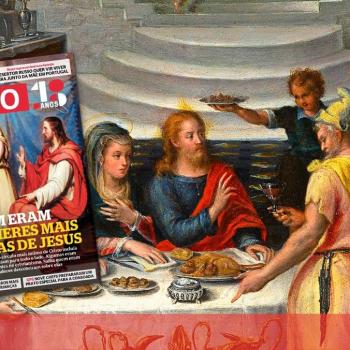 Paul writes about being transformed through the renewing of your mind (Romans 12:2). But for some reason, many Christians seem to think that changing one’s mind is a bad thing, a sign of weakness or backsliding or whatever.
Paul writes about being transformed through the renewing of your mind (Romans 12:2). But for some reason, many Christians seem to think that changing one’s mind is a bad thing, a sign of weakness or backsliding or whatever.
Once again, what Christians are commanded to do in the Bible has become something modern Christians avoid doing and even define as antithetical to being a Christian.
Rachel Held Evans has written a piece about this for CNN’s Belief Blog. Here’s how she puts it:
A person of conviction is not one who is unyielding to change, but one whose beliefs evolve based on new information, new movements of the Spirit, new biblical insights and, yes, new friends.
There’s a story in the New Testament about a Roman centurion named Cornelius, whose fear of God and care for the poor was widely known among the people.
After receiving a vision from God, Cornelius sends for the apostle Peter, who agrees to meet with him, even though it was forbidden for a Jew to associate with a Gentile.
Peter, an observant Jew, had been wrestling with the idea of including Gentiles in the church. But when he encounters the sincere faith of Cornelius, he is moved to declare, “I now realize how true it is that God does not show favoritism but accepts from every nation the one who fears him and does what is right!”
He tells the skeptical people who have gathered outside, “God has shown me that I should not call anyone impure or unclean.”
Peter changed his mind, and the church would never be the same.
Despite deeply held religious convictions regarding circumcision and dietary restrictions, he led the way in opening the doors of the church to all who would enter, regardless of ethnicity, gender, socioeconomic status or religious background.
We can learn a lot from Peter — not only from his inclusiveness, but also from his willingness to change his mind.
Like Peter, God has shown me that I should not call anyone impure or unclean. And that I should not think so highly of myself as to assume I’ve got this faith thing all figured out.












